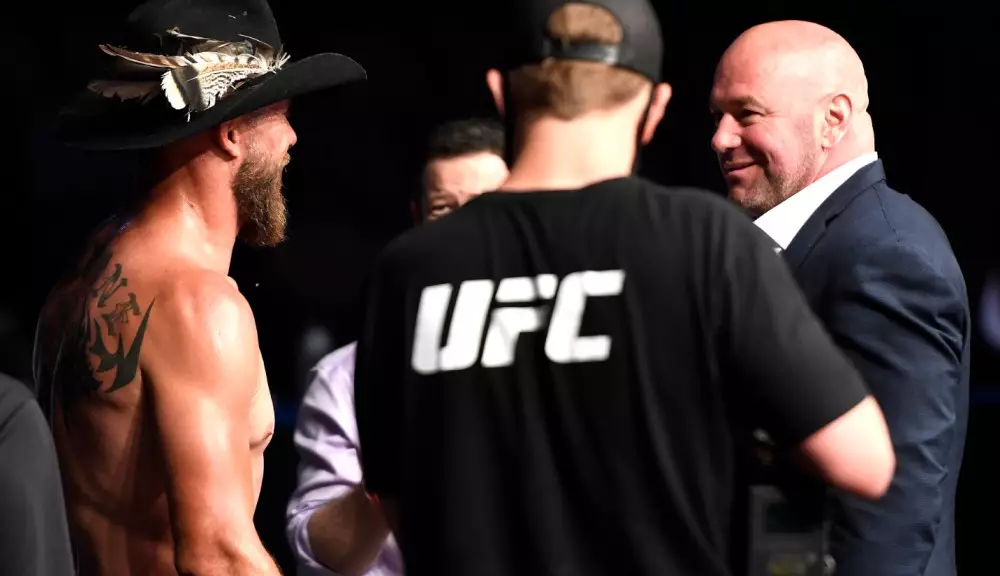The mixed martial arts community was recently stirred by the announcement from Donald Cerrone, a revered UFC Hall of Famer, signaling his desire to return to the octagon. With a record that boasts 36 wins and 17 losses, Cerrone is a fighter whose legacy is undoubtedly cemented. His declaration to compete twice more, aiming for an impressive 50-fight milestone across both the UFC and World Extreme Cagefighting (WEC), is met with a mix of excitement and concern. UFC President Dana White, a strong supporter of Cerrone’s past contributions, is notably apprehensive about this comeback.
Dana White’s reaction to Cerrone’s return reveals a critical perspective often overlooked in discussions about athlete comebacks. While admiration for Cerrone’s fighting spirit shines through White’s words, his worries stem from fundamental concerns regarding the physical and emotional toll of the sport. “Why come back?” White questions, hinting at the dangerous allure of competition that can compel retired fighters to step back into the ring. White stresses that retirements are typically made with genuine understanding of an athlete’s limitations, not only from a monetary standpoint but also acknowledging the profound emotional connection fighters have with the sport. For many, the exhilarating rush of performing in front of roaring fans can be hard to resist, but at what cost?
Cerrone’s pursuit of a milestone seems to elicit thoughts about what constitutes success and fulfillment in an athlete’s journey. The urge to fight for “one last time” can reflect a deeper struggle with closure. The desire to solidify one’s legacy or potentially avenge past disappointments can sometimes cloud judgment. In Cerrone’s case, there appears to be a yearning to not only achieve the coveted 50-fight mark, but perhaps to reignite that spark which made him a fan favorite. White recognizes Cerrone’s storied career, yet insists this longing does not justify a return to the octagon when the fighter himself has previously acknowledged the end of his journey.
This situation shines a light on broader dynamics at play within the realm of mixed martial arts. The sport is notorious for its inability to easily let go of its athletes; the competitive nature runs deep, and the audience’s adoration can be intoxicating. Fighters often face immense pressure—both from their fanbase and internal conflicts—to continue fighting even when they’re aware that their physical prowess may be waning. White’s reflections underline a common predicament where the athlete’s emotional ties to the sport conflict with the rational acknowledgment that rest and retirement can be the wisest decisions.
The intersection of Cerrone’s ambitions and White’s concerns reflects a larger narrative surrounding the world of combat sports. While Cerrone’s desire to entertain one more time before hanging up his gloves again is undeniably relatable, the ramifications of such decisions are multifaceted. With White advocating for a different approach—perhaps one focusing on legacy beyond the confines of the octagon—it’s imperative for fighters to weigh their choices carefully. In a sport defined by intensity and sacrifice, the allure of fight nights must be balanced with the sobering reality of a fighter’s well-being and legacy. Ultimately, the story of Donald Cerrone serves as a poignant reminder of the complex emotions entwined in the evolution of a fighter’s career.

